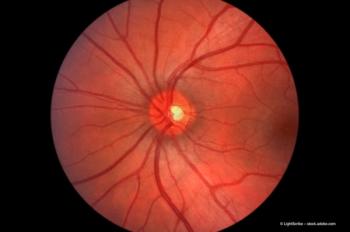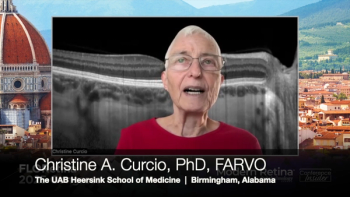
Folic acid and B vitamins may reduce risk of AMD in women
Long-term daily supplementation with folic acid and vitamins B6 and B12 may reduce the risk of developing age-related macular degeneration (AMD) in women with established cardiovascular disease (CVD) or CVD risk factors, said William G. Christen, ScD, DO, associate professor in medicine, Harvard Medical School, and associate epidemiologist, Division of Preventive Medicine, Brigham and Women's Hospital, Boston.
Long-term daily supplementation with folic acid and vitamins B6 and B12 may reduce the risk of developing age-related macular degeneration (AMD) in women with established cardiovascular disease (CVD) or CVD risk factors, said William G. Christen, ScD, DO, associate professor in medicine, Harvard Medical School, and associate epidemiologist, Division of Preventive Medicine, Brigham and Women's Hospital, Boston.
Randomized trial data from a large cohort of women with CVD showed fewer cases of AMD among study participants who had been taking the supplements for an average of about 7 years than among those in a placebo group.
Folic acid and B vitamin supplementation reduced the risk of confirmed AMD by 34% and the risk of visually significant AMD by 41% over the follow-up period, Dr. Christen said.
It has been speculated that CVD and AMD share mechanisms and risk factors, one of which is the amino acid homocysteine. Inadequate intake of folic acid and the B vitamins can lead to increased concentrations of homocysteine in the blood, ultimately triggering various processes believed to be involved in the pathophysiology of AMD, Dr. Christen said. It has also been shown that supplementation with folic acid and the B vitamins can reduce homocysteine levels.
Dr. Christen reported findings from the folic acid and B vitamin arm of the Women's Antioxidant and Folic Acid Cardiovascular Study. This randomized, double-blind, placebo-controlled trial of antioxidant vitamins and folic acid was conducted among female health professionals aged 40 or older with pre-existing CVD or three or more CVD risk factors. The women were already randomly assigned to antioxidants, vitamin E, vitamin C, beta-carotene, or placebos.
For the separate arm, 5,442 women were randomly assigned to 2.5 mg/d of folic acid, 50 mg/day of vitamin B6, and 1 mg/day of vitamin B12 or placebo. Among this group, 5,205 did not have a baseline diagnosis of AMD and were included in the analysis; 2,607 were randomized to active treatment and 2,598 to placebo. The average age in both groups was 62.6 years.
After an average of 7.3 years of treatment and follow-up, 137 cases of AMD were documented through self-reporting, supplemented by medical record evidence. There were 55 cases of confirmed AMD in the folic acid/B6/B12 group and 82 in the placebo group (p = 0.02). For the outcome measure of AMD with vision loss, 26 cases were reported in the folic acid/B6/B12 group and 44 in the placebo group (p = 0.04).
There was no evidence that the effect of folic acid or the B vitamins on AMD was modified by any of the baseline risk factors of study participants.
Newsletter
Get the essential updates shaping the future of pharma manufacturing and compliance—subscribe today to Pharmaceutical Technology and never miss a breakthrough.




























